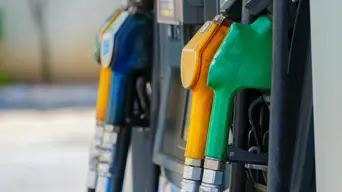Nigerians grapple with 'biting' fuel price hike
The state oil company has not commented on the sudden increase of between roughly 15% and 20% seen at pumps across the country.

Picture: Pexels
LAGOS - Fuel prices shot up at pumps across Nigeria on Wednesday, dealing another blow to Nigerians already suffering the worst economic crisis in a generation.
The state oil company has not commented on the sudden increase of between roughly 15% and 20% seen at pumps across the country.
But it marks the second such hike in just over a month, and in early September the Nigerian National Petroleum Company (NNPC) acknowledged huge debts to fuel suppliers as it announced a roughly 40-percent price increase to help its finances.
Nigerians are already battling soaring inflation and food costs as well as a battered naira currency.
For many, Wednesday's hike was the latest measure to eat into their budgets as President Bola Ahmed Tinubu's government pursues reforms billed as a way to revive the economy of Africa's most populous country.
"It's biting everybody," said Ohaka Amaechi, a 56-year-old police driver queueing for fuel at an NNPC pump in the commercial hub Lagos. "The price isn't good, but we don't have a choice. People are struggling to survive."
At that pump, the price had risen from 855 to 998 naira per litre ($0.53 to 0.62), while elsewhere prices topped 1,000 naira, including in the capital Abuja and the northern city Kano.
Private suppliers already sold fuel at higher prices.
After coming to power last year, President Tinubu said his reforms would revive the economy in the long term and attract foreign investment.
But Nigerians have seen inflation hit a three-decade high since Tinubu ended a fuel subsidy and floated the naira currency.
Before the reforms, petrol sold for less than 200 naira per litre.
"I can't tell if Tinubu is trying to make it better," said Emem Bob, a 24-year-old sales representative queueing for fuel in Lagos.
"Our bosses aren't adding to our salaries, and we pay for transport every day. It will increase food prices too," she said. "It affects everybody."
One of the country's main unions, the Nigeria Labour Congress, said it was "dismayed" by the hike and called for its immediate reversal.
But rallies over economic hardship struggled to build momentum earlier this month following a deadly crackdown by the authorities on nationwide demonstrations in August.
On the day of the poorly attended October protests, Tinubu gave a speech once again calling for Nigerians to be patient with his reforms.